my mum and other regular people need not read this one.
Bart Beaty on Frederick Wertham
Steve Bissette comments on Frederick Wertham on his own blog after contributing a few words to the comments on mine over the last few days.
This is another one of those moments, like the argument about Vince Colletta, that has boosted my readership here for a day or two and I apologize to all the sensible people who have no interest in the subject whatsoever. I'll post my last word here rather than allow it to sit like a lump in the road at Steve's place and stop all the comic book nuts from taking potshots at Wertham.
We are all to a greater or lesser extent products of our time. Wertham was a product of his own time, which culminates in the post war and cold war years, a time of suspicion of nonconformity. Steve is a product of the sixties, which rebelled against all that. Walt Kelly was a product of his own time too and it comes as no surprise to me that he thought the authors of the crime and horror comic books should be kept out of the National Cartoonists Society (see Steve in comments a couple of days back, and Beaty too). Don't forget that in 1950 the NCS spent six months arguing before allowing the first woman to join the society (as detailed in RC Harvey's book on Caniff, pages 612-615), never mind artists who were giving cartooning a bad name.
Today women are permitted to join the society, comic book folk have their own club, and Wertham's book is out of print. It's no longer relevant, having been long ago overtaken by circumstances. You say Kitchen thought of reprinting it? (see Steve's post at his own blog) That's another one of the cockeyed notions that put them out of business, if you ask me. So, I'm having trouble understanding why anybody would want to continue arguing about the matter, shouting back at the deceased over all these years, except that comic book fans tend to be people with a manichean view of reality and like to have a villain to... well just to be a villain, he doesn't have to be doing anything that's causing anybody significant problems. What was the result? Were you robbed of a childhood? A chldhood full of better comic books? As Beaty says in his part 3, the comics were going south anyway. TV was causing it, and that ten cent pricing problem. Colletta was a product of his time too. He didn't see anything wrong with erasing a few of Kirby's figures to save himself time from having to ink over them. He didn't realise some fools would be taking comic books so seriously many years later. In his time they were just junk. And to all you who are feeling miffed I say, Frederick Wertham, Vinnie Colletta and Doctor Doom, the evil triumvirate that plotted to steal your childhood from you, they didn't steal it. You're still in it.
I'm out of town for a couple of days. Argue among yourselves.
before I go... Sreve, you must already be familiar with these: "The Kaibo Zonshinzu anatomy scrolls, painted in 1819 by Kyoto-area physician Yasukazu Minagaki (1784-1825), consist of beautifully realistic, if not gruesome, depictions of scientific human dissection." (thanks to dr jon)
Labels: censorship, comics crit 1
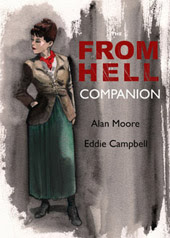
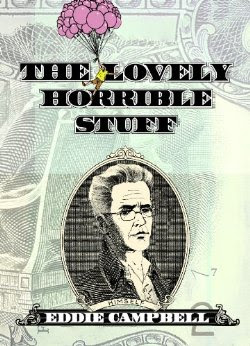

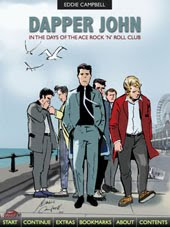
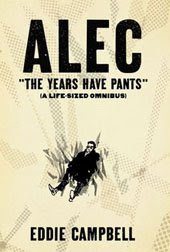
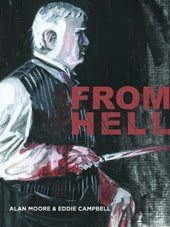

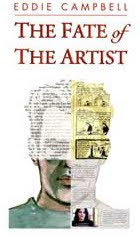






16 Comments:
You misunderstand my interest (per usual), Eddie: Since a vast school of media criticism is in fact founded on Wertham's orientation, culturally and in Pavlovian terms, which we DO bump against every day stateside, the wellspring is worthy of study and analysis.
Too many of presumptions and conclusions of Wertham's were adopted wholesale, and still are, sans what to me is the key -- the CREATIVE nature of interaction, as readers and as creators, with the narrative form (all fiction and fictionalized constructs).
Finally, I love the schism: your interest in the past is valid, others having similar interests in other aspects of the past is not. C'mon, Eddie -- you're a sharper tack than that.
I agree today's generation has suffered nary a whit from Wertham's impact on comics per se. But the same illogic being applied to other media impacts daily; and the recent rise of Wertham supporters and apologists (including Rifas, Beaty) is symptomatic of the current times. Hence, understanding the full context of what is being re-elevated as worthy of notice today does deserve analysis and discussion from others with access to the primary sources (e.g., Wertham's texts, and the true historical record).
Oh, if only you'd had that Q&A with Will Eisner!
And yes, I love dem Kaibo Zonshinzu bones! Dem bones, dem bones, dem --
everybody ought to be interested in the past. It's the taking sides that is dodgy historiography. Beaty tells us some good stuff about Wertham so he must be an 'apologist' for Wertham's supposed crimes. I could tell you weren't too impressed with Kelly etc.
It's all just facts. Caniff was militarist and you and I aren't. I still enjoy reading his work. It's all just facts. We deal with the world as best we are able with the tools we're given. Different times make different people. Let's look at Wertham by all means, and let's be cool and logical. I bet there's an uproar within two or three comments under your post.
Um.
Speaking of anatomy, some original woodblock prints from Grey's Anatomy were on display in the very cool Hunterian Museum/Library for a bit.
But probably only drjon will give a fuck.
Please continue.
You wrote: "Colletta was a product of his time too. He didn't see anything wrong with erasing a few of Kirby's figures to save himself time from having to ink over them. He didn't realise some fools would be taking comic books so seriously many years later. In his time they were just junk."
1 comment from me regarding Kirby/Colletta only, Kirby put so much clutter into his backgrounds that the main figures became obscured in the jumble. I'm sure other inkers erased unneccesary backgrounds, etc. when they felt it detracted but none would ever admit it, of course.
Regarding Colletta in general, he knew of the fervor of comic book fans during the Marvel period and was fully aware that they were quite serious about these books. Unfortunately, though, when Stan calls and asks you to ink a 16 pager over the weekend, your desire to please comic fans becomes secondary to getting the work to the printer on time.
Danny
http://ismarkevaniermentallyill.blogspot.com/
"and Wertham's book is out of print"
The book's still available, but in a somewhat overpriced edition:
http://www.amazon.com/Seduction-Innocent-Fredric-Wertham/dp/0848816579/
Great link, Hayley. This place looks fabulous.
Terrific link, Hayley, and thanks for that!
My interest has never been in 'taking sides,' but in analysis of how critics of media -- and comics in particular -- operate.
There's a standard operating procedure in divorcing imagery from dramatic context, and in a glib writing style that makes vast associative links within single sentences based on no presented evidence or even transitional sentence structuring, that constantly characterizes such texts.
Wertham ESTABLISHED many of these techniques for the contemporary arena, via his pop psychology texts like SEDUCTION. His case histories -- like CIRCLE OF GUILT -- are far more persuasive and deep texts, and far more worthy of reading, but it was SEDUCTION that had such an enormous and lasting cultural impact, from your current shore, Eddie, to my own enormous splintered continent.
Anyhoot, fuggit, see you in the imaginative outback.
Eddie - Obviously on your own blog, you are entitled to pass judgment about things you consider worth discussing, but IMHO, you are selling the subject of Wertham short by comparing it to the minutia of comic-book inking. Wertham was an early example of a particular species of social parasite - the well-meaning, therapeutic, paternalistic censor - who still blights the political landscape.
It is worth revisiting the more ridiculous qualities of his crusade in light of current morals and mores precisely because doing so shows that the path of the censor almost always looks absurd in the light of history, even when the individuals concerned are as superficially sympathetic as the (otherwise) liberal-minded and clinical Dr. Wertham. Actually, the well-meaning ones are the worst, because you can't dismiss them quite as easily as the outright fanatics. But IMO, the ability to make great art (and sometimes lousy art) depends on dismissing them nonetheless.
Making this all seem like a matter of "bad historiography" and the nostalgia of fanboys needlessly belittles why intelligent people consider Wertham worth discussing. The problem of Wetham doesn't turn on whether the comics of the 1950s were any good from an aesthetic standpoint, or whether the products supressed by the Code were worth saving. Neither does it turn on whether Wertham himself was a mustache-twirling villain or a good husband and father. To me, the core issue is pretty simple: Wertham and his followers wanted creative works banned, without presenting convincing evidence of their harm. And, as Steve points out, SOTI popularized (and legitimized) a kind of pseudo-scholarship that substitutes fear-mongering and inference for reasoned argumentation. For good reasons or bad, Wertham activated a lot of ugly emotions that were in the air in the 1950s, made millions of parents needlessly worried about their kids, and ended up putting a lot of artists out of work just to satisfy public hysteria. Showing respect for his work empowers others to follow his example.
That would seem to have relevance beyond the "I miss the old EC" fan-addict mindset and it's vaguely insulting to suggest otherwise. I'm surprised that you, as the author of some pretty confrontational and challenging work, don't see more value in deconstructing the methods of the censor. Each to his own, but it strikes me as a pretty important topic in the history of art.
I don't think it is a matter of turning Wertham into a hero or villian, it's more about presenting history as it is as opposed to how paranoid fanboys wish to present it (a form of censorship in a way, as it doesn't allow the truth)
"Wertham and his followers wanted creative works banned, without presenting convincing evidence of their harm."
From what I can gather (admittedly second hand from blogs etc) is that Wertham didn't want them banned so much as he wanted to restrict childrens access to them.
In regards to "without presenting convincing evidence of their harm" there are those who are convinced of the evidence, or who at least think the evidence isn't worth dismissing out of hand. Why is the evidence unconvincing?
Why is the evidence unconvincing?
Steve Bissette examines this in some detail over at his blog. From what I can gather, the anecdotes and snippets from interviews in SOTI are presented without any kind of context or citation; his clinical evidence was narrowly-based and did not support his findings; and Wertham's attempts to show a causitive relationship between comics and juvenile delinquency fall short even by the psychological standards andpractices of his own day.
I tend to agree that it's foolish to speculate as to Wertham's real motives for writing SOTI - whether he was a well-meaning social advocate, a prude, or a self-aggrandizing charlatan. Regardless, I happen to believe censors bear a special burden of proving that the work they oppose actually causes harm, rather than simply gives offense. Wertham not only failed the standard, but appears to have also acted in bad faith in presenting his evidence.
Wertham didn't want them banned so much as he wanted to restrict childrens access to them.
Comics were burned in bonfires as a direct result of his work. Artists were blacklisted and lost their livelihoods. Retailers were prosecuted. When you let the genie out of the bottle, your intentions don't really matter anymore.
Rob,
The evidence: Beaty examined Wertham's papers and tells us that names are named there but witheld for publication on the grounds of patient confidentiality.
You confirm that Wertham was a product of his time.
I personally have never been censored. All objections to From Hell over the years were met and overcome. I have no beef whatsoever about the subject of censorship. The good guys usually win (eg. Gordon Lee). On the other hand I think it's a good thing that there are dissenting voices in the community against all kinds of things that you may or may not regard as evils, such as abortion etc.
But it sure seems to me, reading your words above, that you are unnecessarily hot under the collar about all of this. 'Self-aggrandizing charlatan?' You've have obviously got it in for the guy. He wanted 'creative works' banned? This sounds anachronistic. Hardly anybody, including most of the people who wrote and drew them, regarded comic books as 'creative works.' They were regarded as junk. I've read that Graham Ingels in later years loathed what he had done in those old comic books and didn't like to be associated with them. I've also read that Krigstein and Kurtzman both thought the horror comics went too far. For what it's worth, I personally also regard them as junk, though of course I have no problem with them existing. If my kids had been reading them I would probably have regarded it as unhealthy and tried to turn their attention to something else, but then I'm a wishy washy liberal. Other people would have tried to ban them at the source. Some people think like that. I have no problem with it. They proabbly have a stronger sense of community than I do. If society collectively thinks that somebody else is doing something bad, i think it's good that society as a collective tries to stop it, whether it's killing whales or racism, or mining in land sacred to the people who were there first. If society occsionally gets it wrong and unjustly puts an end to something that later opinions assert wasn't harmful after all, well that's just how it goes. And it will continue to go one way and then the other. A society should have standards.
Personally I think that casual dress friday should be outlawed.
Regulated casualness is an abomination that must be stopped.
You know what is the absurd thing about all of this?
We say the issue is about the first amendment, that is: FREEDOM OF SPEECH.
And then we are outraged about something a man wrote in a book.
He didn't censor. He didn't recommend censorship., If somebody else extrapolated that from his writing, that is a completely separate issue.
The man wrote a book. He said what he had to say. He believed it. He published it.
It's not popular.
I like that.
I've been following this debate with interest. Glad to see you're not going along with the usual crap of tying Werther in with McCarthyism, a-bomb propaganda and christian fundamentalism.
If we look at Werther's greatest detractors, do we really want 9-year olds to be reading their stuff too? Post -'Zap' artists - racism, rape and mutilation (be honest: would you want your baby boy to grow up to be S Clay Wilson or Rory Hayes?). Frank Miller - I read his Daredevil religiously as a kid, but all that sticks in my mind now is its fear and disgust at urban minorities (see 'Sin City' for further evidence). Not to mention legions of twerps trying thinking violence in thongs equals 'mature entertainment'.
In many ways Werther was warning us about what was on the way in the mainstream: facistic vengeful entertainment, neuroses substituting for character, the endless message that life is worthless and it's ok to beat up/rip off/humiliate those who stand in your way.
EC fetishists neglect to mention that Werther just didn't want kids to have their sexuality formed by mass media, see other races as 2-D sterotypes, and might is right. He was painfully aware of where that could lead - however our current 'hip' media is in serious danger of forgetting. He only seems quaint because he wrote before the period between James Bond and grand theft Auto.
EC had a half-dozen talented illustrators (of whom only Frazeeta made a mark after EC's demise), mediocre writing (no, 'Mad' is not funny) and failed to do anything for the art of comic-book storytelling even when compared to supposedly cheesy Silver-age Marvel. Third rate radio plays without Lee's wit or Kirby's vision.
I'm by no means hawking 'moral values', but I'm sick of hearing about yet another kiddie movie acclaimed for being 'dark' (ie. neurotic, sadistic and exploitative). I don't think Frank Miller did my childish perceptions much good. Don't foist your hang-ups on my kids, creeps!
Love the blog by the way, and glad to see your stuff coming back into print! Maybe now I'll get round to reading a comic this year...
ps. I also think the much-trumpeted protest against comics ratings in the 80s (along with the PMRC controversy) was overpraised egos out of control. Nothing was being banned. Maybe it was a good idea to tell parents that 'Black Kiss' wasn't suitable for helping Johnny read?
pps. the only good inkers Kirby had were Joe Sinnot and Mike Royer (those double-page spreads!). Chic Stone was by far the worst - he made the Avengers and the Howling Commandos look slow, bored and tired.
Post a Comment
Subscribe to Post Comments [Atom]
<< Home